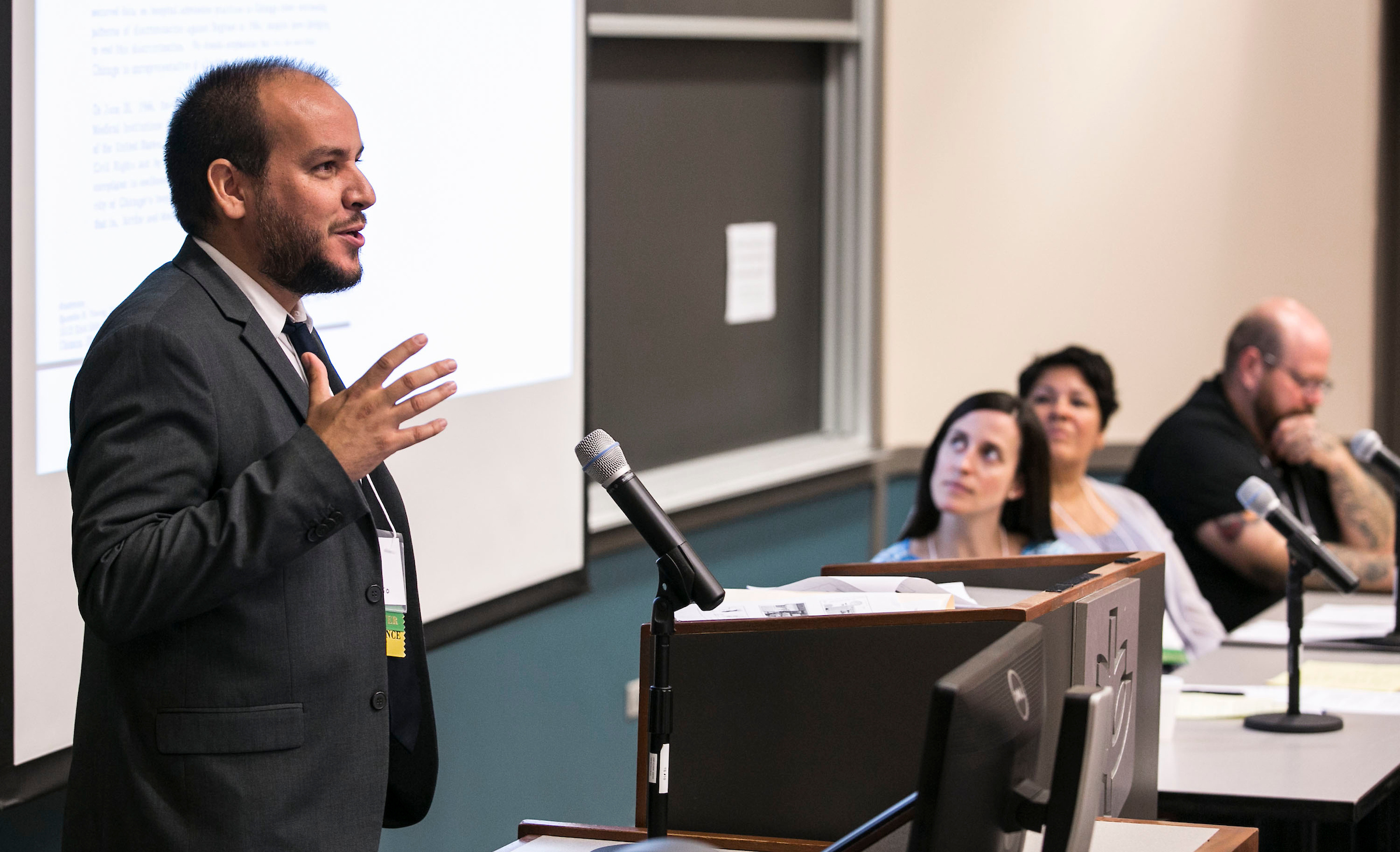 Fernando De Maio, professor of sociology, introduces panelists at the Health Disparities and Social Justice Conference in 2016. De Maio is working on a commission to create an equity-focused public health data system. (DePaul University/Jamie Moncrief)
Fernando De Maio, professor of sociology, introduces panelists at the Health Disparities and Social Justice Conference in 2016. De Maio is working on a commission to create an equity-focused public health data system. (DePaul University/Jamie Moncrief) The COVID-19 pandemic laid bare gaps in the nation’s public health infrastructure and data systems. Fernando De Maio, a professor of sociology at DePaul, is working on a national commission tasked with laying out a blueprint for change.
As a member of the National Commission to Transform Public Health Data Systems, De Maio and his colleagues are taking lessons from the pandemic to reimagine how data are collected, shared and used. The commission identified investments needed to improve health equity across many sectors including government, business and health care. Established by the Robert Wood Johnson Foundation, the commission released its recommendations on Oct. 19.
“An equity-focused data system will not just describe problems; it will help us work toward solutions. It will be a valuable tool for social justice,” De Maio says.
The group calls for ensuring public health measurement captures and addresses structural racism and other inequities. De Maio has been working at the forefront of that issue throughout the pandemic, both at DePaul’s Center for Community Health Equity and in his role as director of health equity research and data use for the American Medical Association. In collaboration with the Sinai Urban Health Institute, De Maio recently published “Unequal Cities: Structural Racism and the Death Gap in America’s Largest Cities” with Johns Hopkins University Press. As part of a team at DePaul in 2020, De Maio helped the city of Chicago fill in gaps about race and ethnicity in COVID-19 testing data.
The RWJF Commission’s report also describes the need to deepen understanding of the value of public health data and shift perceptions about what constitutes public health data. It calls for investment in research to refine metrics for measuring segregation and other forms of separation in institutions and systems, as well as metrics for understanding the burden of racism in all its forms in society.
“The Commission recognized the need for guidance for how to interpret racial differences in health outcomes, focusing on racism — not biology or behaviors — as the root cause of health inequities in the United States,” De Maio says.
Looking ahead, the commission is calling for government, business and others to take specific actions. Some examples include ensuring data are collected and interpreted equitably to illuminate where people and places are cut off from key drivers of health, such as nutritious food, good schools, and stable and affordable homes. Another is to prioritize governance of data infrastructure to put equity at the center. This includes collecting data across population groups by race, ethnicity and geography and investing resources at the federal, state and local levels where they are needed most. The RWJF will award $50 million in funding for projects that advance the Commission’s efforts.
More information is available online.
Kristin Claes Mathews is assistant director of news and integrated content in University Marketing and Communications.